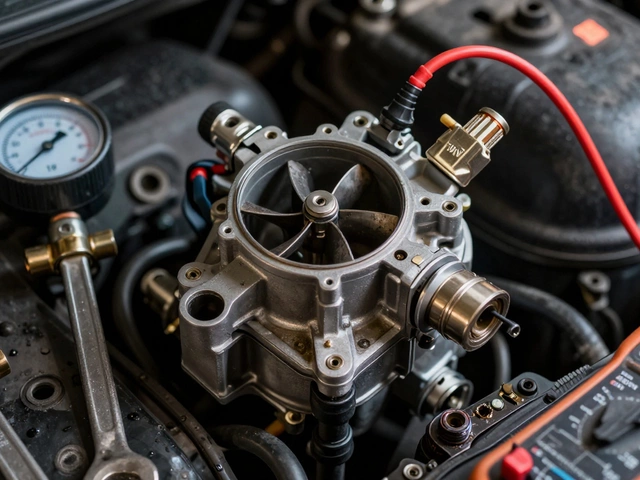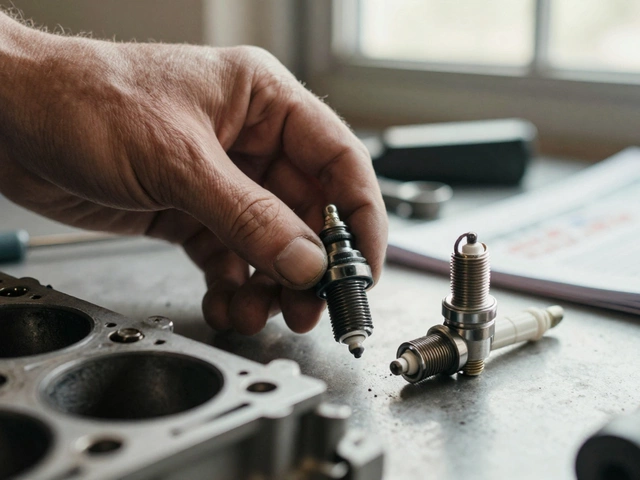Engine Trouble: Identify, Diagnose & Fix Common Car Problems
Feeling a rough idle, a loss of power, or a strange noise? Those are the first clues your engine is sending out. Ignoring them can lead to costly repairs, but you don’t always need a garage visit right away. Below is a quick guide to spot the usual suspects and decide when a professional’s touch is required.
Spotting the Warning Signs
Most engine issues start with a symptom you can feel or hear. A misfiring engine often points to failing spark plugs – you’ll notice a jittery acceleration or a popping sound when you throttle. If the check‑engine light flashes, it’s usually an ignition or fuel‑system problem, like a clogged fuel injector or a weak fuel pump. A whining or grinding noise while shifting? That could be a worn clutch or a transmission issue. Bad suspension or bent components won’t directly damage the engine, but they affect handling and can mask deeper problems.
Other red flags include excessive exhaust smoke, a drop in fuel efficiency, or the smell of burning clutch material. When you hear a high‑pitched squeal on startup, it might be a belt slipping, which can overheat the water pump and jeopardize the cooling system. Anything that feels ‘off’ under the hood deserves a quick test before you head out to a mechanic.
DIY Checks Before You Call the Shop
Start with the easy stuff. Pull out the spark plug caps (you’ll need a socket set) and inspect the plugs for fouling, carbon buildup or worn electrodes. If they look dirty, a simple cleaning or replacement can restore smooth running. Next, listen for the fuel pump’s whine when you turn the key to the "on" position – no sound often means a pump failure.
Test the battery voltage with a multimeter; a reading below 12.4 V can cause poor ignition performance. For clutch concerns, try a hill start: if the engine stalls or the clutch slips loudly, it’s time for a professional look. Finally, check fluid levels – low coolant or oil can cause overheating, which in turn leads to engine knock or seizing.
If any of these checks reveal a problem you can’t fix yourself, or if the engine continues to run rough after simple fixes, book an appointment. A qualified technician can run a full diagnostic scan, pinpoint error codes, and assess internal components like the timing chain or turbo.
Keeping a regular maintenance schedule – changing air filters, spark plugs, and fuel filters at manufacturer intervals – prevents many engine‑trouble scenarios. And when you’re unsure, it’s always smarter to let a pro take a look before a small issue turns into a big bill.
 1 March 2025
1 March 2025
Signs Your Fuel Pump is Failing: What to Watch For
Ever wondered how your vehicle behaves when the fuel pump starts to fail? It's crucial to recognize the signs before you find yourself stranded. This article delves into the common indicators of a failing fuel pump, offering practical advice and tips on what to look for. Stay ahead of potential engine troubles by understanding these symptoms, helping you ensure a smoother ride and prevent unexpected breakdowns.
Latest Posts
-

Testing Your Clutch: Simple Steps to Know It’s Working Right
-

Understanding Oil Color on a Dipstick: What to Know for Optimal Engine Health
-

What Code Will Show for a Bad Fuel Pump? Common Diagnostic Trouble Codes Explained
-

Are Cars More Responsive After Spark Plug Change? Here's What Really Happens
-

HVAC Air Filters: Which Type Gets Used the Most—and Why?
Tags
- car maintenance
- engine oil
- spark plugs
- brake pads
- engine performance
- vehicle maintenance
- spark plug replacement
- windshield wipers
- fuel pump
- suspension parts
- clutch replacement
- oil change
- clutch kit
- car suspension
- car performance
- air filters
- car radiator
- exhaust systems
- fuel pump replacement
- engine misfire

0